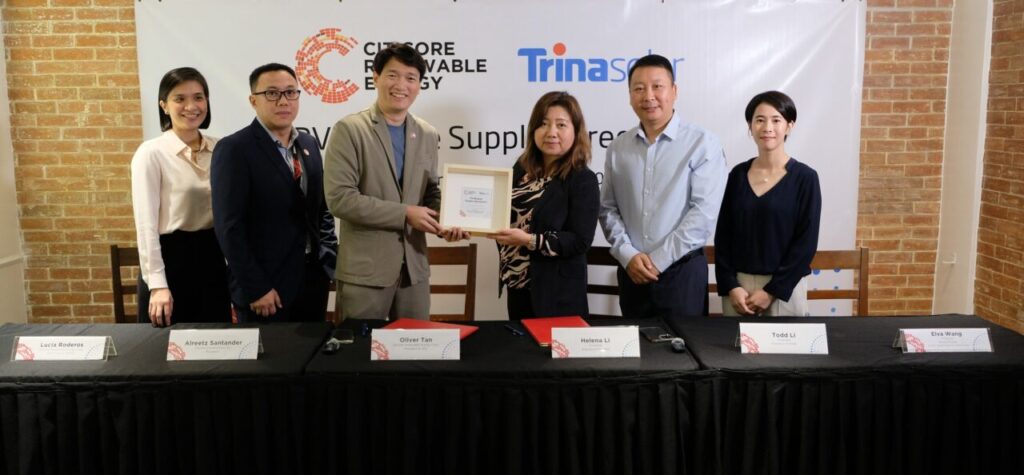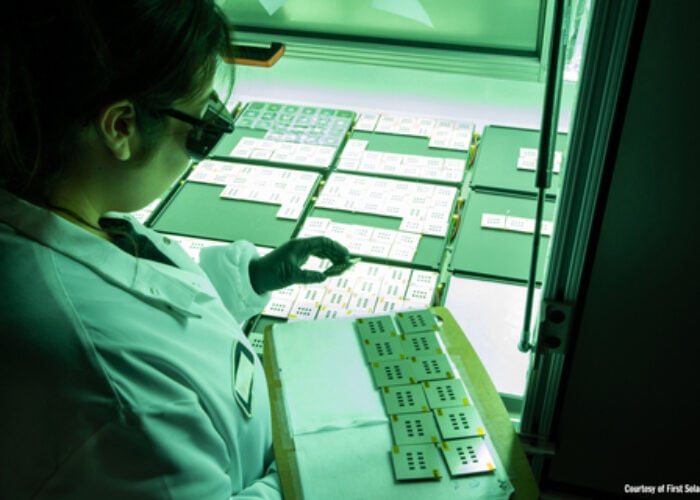
Chinese solar manufacturing giant Trinasolar has signed a 2GW module supply deal with Philippines renewable energy developer Citicore Renewable Energy Corporation (CREC).
CREC will receive delivery of Trinasolar’s Vertex N 720W Series of n-type tunnel oxide passivated contact (TOPCon) modules, to be deployed in its utility-scale solar projects over the coming years. The two companies signed a 700MW deal in October last year for Trina’s Vertex DE21 modules.
Try Premium for just $1
- Full premium access for the first month at only $1
- Converts to an annual rate after 30 days unless cancelled
- Cancel anytime during the trial period
Premium Benefits
- Expert industry analysis and interviews
- Digital access to PV Tech Power journal
- Exclusive event discounts
Or get the full Premium subscription right away
Or continue reading this article for free
“With our first gigawatt nearing completion, we are now paving the way for our next two gigawatts of solar projects through this newest supply contract with Trinasolar,” said CREC President and CEO Oliver Tan.
The Philippines’ Department of Energy has committed to meeting 35% of its electricity use with renewable energy by 2030 and 50% by 2040. In August this year, the Board of Investments (BOI), an agency attached to the Department of Trade and Industry, accelerated the permitting of a 3.5GW/4.5GWh solar-plus-storage project in the Bulacan and Nueva Ecija provinces.
Last month, Trina announced that it had pushed its i-TOPCon cell, the basis of its Vertex N module series, to 25.9% conversion efficiency. The company claimed this was a new record for a bifacial industrial TOPCon cell.
The company has had an active few months around its technological and manufacturing operations.
Last month, Trinasolar waded into the solar industry’s ongoing TOPCon intellectual property disputes by suing its competitor, Canadian Solar, for alleged TOPCon patent infringement in the US. This followed a filing with the US International Trade Commission (ITC) over products being imported to the US by Chinese competitor Runergy and Indian firm Adani Green Energy.
Sale of US manufacturing assets
However, last week, Trina announced the sale of its 5GW Texas module production facility to battery energy storage manufacturer Freyr Battery. Coming the day after Donald Trump won the US presidential election, the timing of the sale raised eyebrows among industry observers, particularly as it represented a major technological shift for Freyr.
Even prior to the president-elect’s victory – which promises some challenges for the US renewable energy sector – US lawmakers had been seeking to pass a bill excluding Chinese solar manufacturers from US tax credits under the Inflation Reduction Act (IRA).
Led by Democrat senators Sherrod Brown and Jon Ossoff, representatives of Ohio and Georgia, respectively, the bill would limit access to the US advanced manufacturing credit for products “produced by foreign entities of concern”. Both Georgia and Ohio have become home to major US-based solar manufacturing projects from Cadmium Telluride (CdTe) thin-film manufacturer First Solar and Korean-owned Hanwha Qcells.






